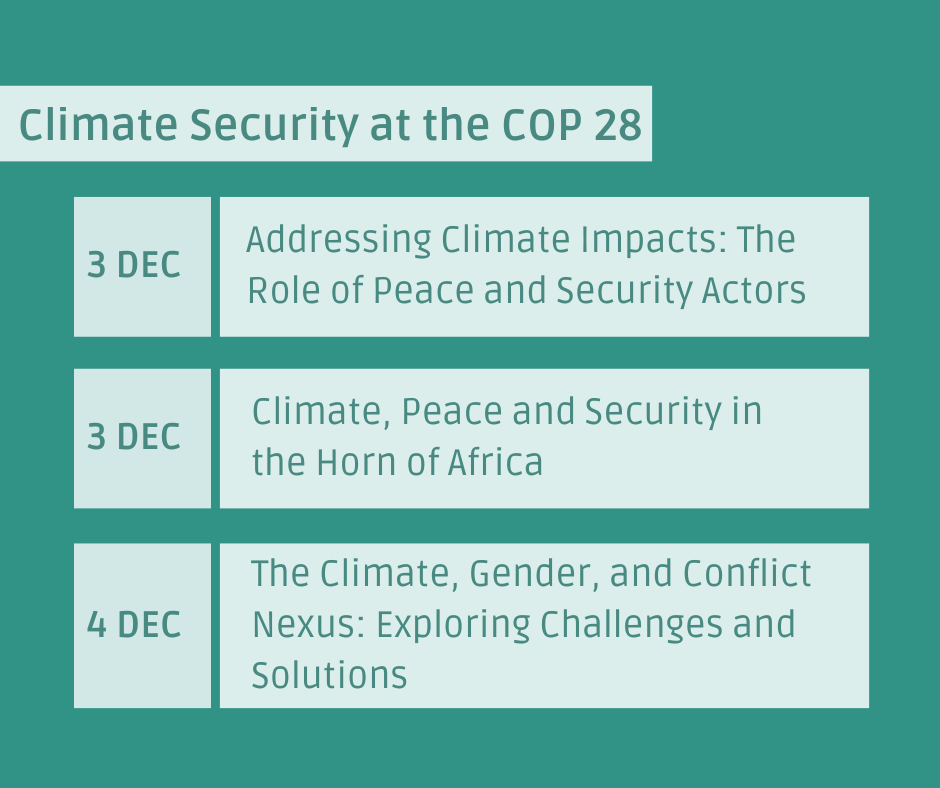This Thursday, 30 November, the 28th United Nations Conference of Parties on Climate Change (COP) will kick off in Dubai. The annual world summit serves as a meeting point for states, regional organisations, and non-state actors to discuss action in dealing with climate change and environmental loss. The ambition is to reduce human interference with the climate system. This was first embedded in the 1992 United Nations Framework Convention on Climate Change (UNFCCC) treaty.
At previous COPs, two notable initiatives were agreed upon. The 1997 Kyoto Protocol was the first legally binding protocol to limit greenhouse gas emissions. Signatory countries committed to an emissions reduction of at least 5% by 2012. The 2015 Paris Agreement aims to hold “the increase in the global average temperature to well below 2°C above pre-industrial levels” and pursue efforts “to limit the temperature increase to 1.5°C above pre-industrial levels.” To keep track of progress, a Global Stocktake (GST) takes place every five years, with the first set to conclude at COP28. The expected results are clear: we are not on track. The recent UNEP ‘Emissions Gap Report’ predicts a 2.5-2.9°C temperature increase by 2100. However, GST results may inspire global climate action by emphasising the urgency at hand.
This year’s conference will focus on four areas of action: 1) climate, 2) energy, 3) nature, people, lives & livelihoods and 4) inclusivity. For two weeks (30/11- 12/12), on the side of the negotiations, various events and meetings will take place covering a wide range of topics ranging from the health impacts of climate change to finance mechanisms for ecosystem restoration.
With a great number of related events, the security impacts of climate change seem widely addressed. The trend across COP programmes of recent years is an increasing acknowledgement and integration of the climate security perspective. Especially during the ‘Health / Relief, Recovery and Peace Day’ on 3 December. For now, limited details are published, but we have listed three highly relevant events below:

Various side-events at the COP28 will be streamed live on the UNFCCC’s website and on its YouTube channel.
Climate security has not always been popular, but since the early 2000s the concept gained more traction. By now, countries such as the United States, Germany, and Sweden recognise climate change as a threat to national security. The Netherlands does too, but in a recent letter to parliament by the Minister of Climate and Energy, in which expectations and ambitions for COP28 are outlined, climate security is not explicitly mentioned.
Outcomes of earlier COPs are criticised, as new treaties, accords and ambitions are no guarantee for change. These ambitions often conflict with domestic political priorities as the Paris Agreement allows for countries to individually decide how much they will reduce their national emissions.
This year’s host country has been accused of greenwashing while also having vested interests in fossil fuel energy. Clingendael Research Fellow Giulia Cretti and Academy Fellow Jeremy Dommnich, who will be part of the Clingendael Delegation to COP28 shared their expectations. Cretti expects the future of fossil fuels to be the most difficult issue to negotiate. ‘’The fact that UAE is one of the world’s top 10 oil-producing nations, together with the growing influence of fossil fuel lobbyists, has caused controversy and raised concerns about a positive outcome of climate negotiations.’’ Dommnich, who teaches negotiation and mediation, adds that ‘’negotiating about climate finance has historically been difficult, but I hope that negotiators will move towards integrative outcomes and beyond entrenched symbolisms and identities.’’
Some point to positive outcomes of recent COPs. The technical phase of the GST concluded that the Paris Agreement led to increased action on climate change. After COP27, several climate-finance innovations were launched. For example, a program to promote climate technology in developing countries was launched. In addition, an agreement was reached on a new ‘Loss and Damage’ fund to assist countries that are most vulnerable and impacted by climate change. However, unresolved differences on how the fund should be operationalised have thus far hampered implementation. At COP28, hopes are that these issues can be agreed upon. ‘’The eyes of the world are on you,’’ said COP President, Sultan Al Jaber to the committee, which was tasked to formulate recommendations before the 28th summit.
Recent summits too have outlined ambitions and emphasised urgency. Yet, ‘’we fall short on mitigation, adaptation, and finance,’’ says Pieter Pauw, policy advisor on international climate policy and Clingendael Associate. ‘’This COP will not be a success unless countries agree on how to phase down fossil fuel use quickly in the coming years.’’ In the coming two weeks, it will be up to world leaders to demonstrate whether we are capable of that.



